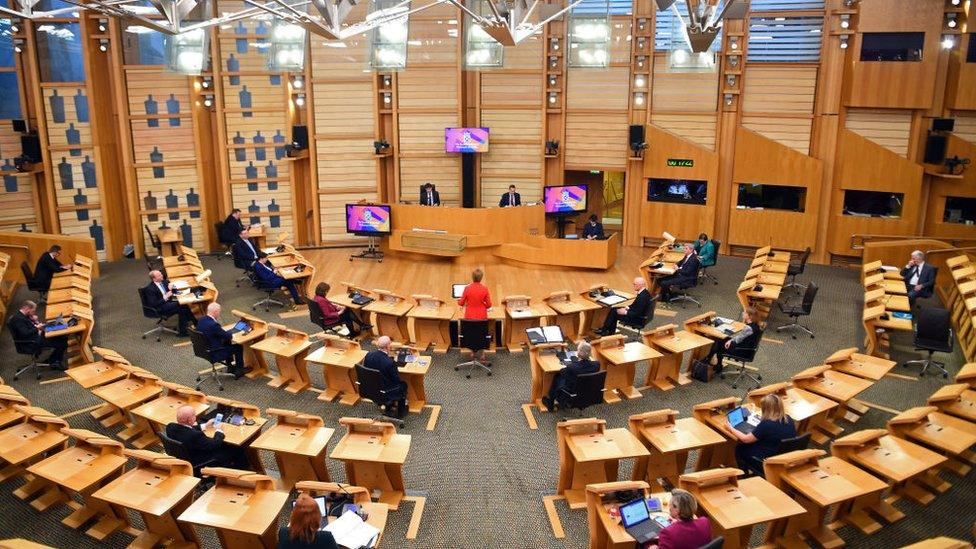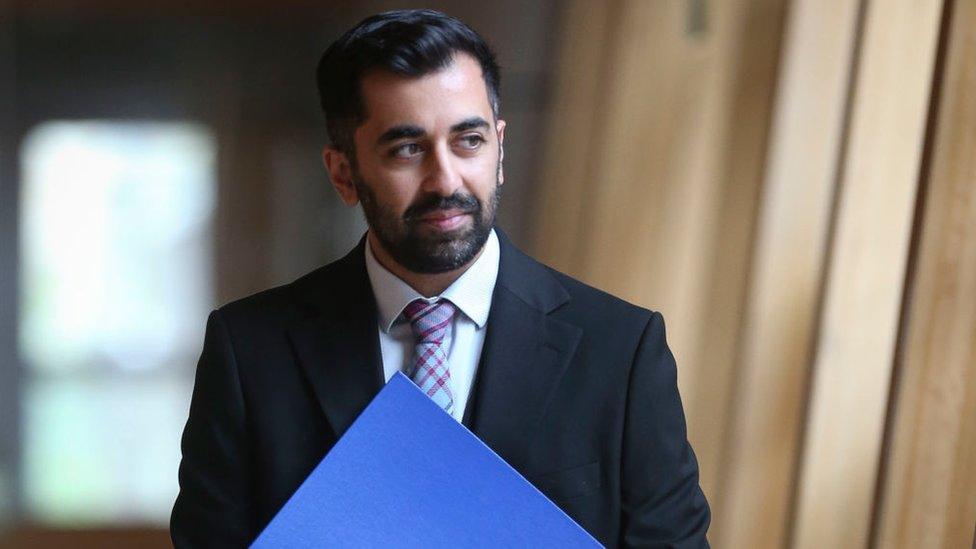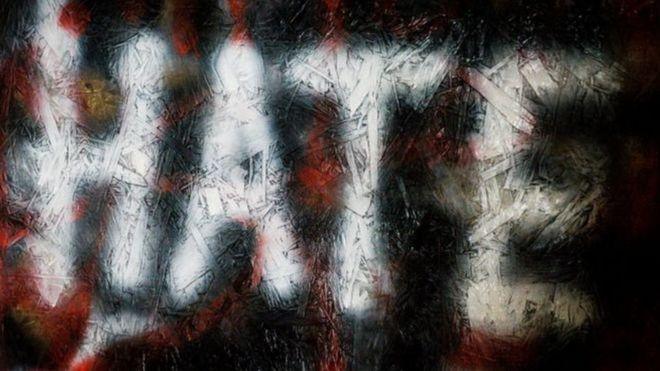MSPs give initial backing to new Scots hate crime laws
- Published

MSPs voted to endorse the general principles of the new hate crime legislation
MSPs have backed the general principles of the Scottish government's new hate crime laws after ministers agreed to make changes to controversial plans.
The Hate Crime and Public Order (Scotland) Bill passed its first Holyrood test by 91 votes to 29.
Justice Secretary Humza Yousaf said hate crime was a "constant threat" to society and victims must be protected.
He said he was "open minded" about more changes, having already promised to address fears about freedom of speech.
Thousands of submissions were sent in to Holyrood's justice committee raising a range of concerns over the possible impact of the legislation.
While opposition parties welcomed changes pledged by Mr Yousaf, many called for further amendments if they are to back it later in the parliamentary process.
The government introduced the legislation in response to a review of hate crime laws by Lord Bracadale, aiming to consolidate existing law but also introduce new protections for victims.
Some of these measures have proved controversial with groups ranging from lawyers to authors and churches, with police groups warning they may be difficult to enforce.
This led Mr Yousaf to promise wide-ranging changes to the bill before a debate was even scheduled at Holyrood.
These included deleting one section - about possessing "inflammatory material" - altogether, and making crucial amendments to others.
A key concern about the bill as drafted was over a section which creates a new crime of "stirring up hatred" against protected groups - defined as "behaving in a threatening or abusive manner, or communicating threatening or abusive material to another person".
The bill originally said this could cover any cases where "a likely consequence" of someone's actions was to stir up hatred, but Mr Yousaf has pledged to change this to only apply to people who specifically have the "intention" of doing so.

Humza Yousaf said there was not a "binary choice" between freedom of speech and protecting victims of hate speech
The justice secretary said scrutiny from the committee had "helped improve" the legislation, adding that the government had shown "great willingness to compromise and address concerns".
Mr Yousaf said freedom of speech was "fundamental to our democracy", but said this should not stand in the way of robust measures to tackle hate speech.
He added: "It does not have to be a binary choice between freedom of expression and ensuring we have strong hate crime laws that afford protection to people who are often the target of hate - it is not one or the other."
'Real concerns'
While opposition parties all said they would be pursuing amendments at the next stage in the legislative process, the Scottish Conservatives were the only party to actually vote against the bill at stage one.
The party's justice spokesman Liam Kerr praised the "forensic" work of the justice committee in examining the bill and demanding changes - calling it the "most controversial" piece of legislation in the history of devolution.
He said "encouraging amendments" had been proposed by Mr Yousaf, but said "mere tinkering is not enough".
He said the bill as drafted "does not get the balance right and as drafted could criminalise that which other people find offensive or disrespectful", adding: "There is no way any politician with a belief in our fundamental right to freedom of speech could support this dangerous and shoddy law."
Labour's Rhoda Grant said it was important to consolidate hate crime laws, but said her party had "real concerns about the way the bill has been drafted".
She welcomed that Mr Yousaf had "listened to concerns", but added: "I believe he must go further to meet the concerns expressed about this bill."
Scottish Green MSP John Finnie said it was important the bill did not have "unintended consequences", saying there was "a way to go with some aspects" of the legislation.
And Lib Dem Liam McArthur said while further changes still needed to be agreed, Mr Yousaf had "recognised the hole he had dug and sought a ladder rather than a shovel".
- Published15 December 2020
